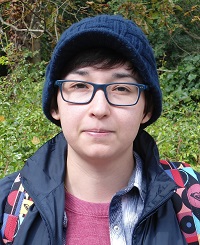Becoming a meteorologist was a dream since early childhood. I always had (and still have!) a fascination with all kinds of storms and I wanted to understand how they form and intensify. In addition, I wanted to understand the various aspects of our planet’s weather and climate and to contribute in the efforts to mitigate the effects of the climate crisis.
The SCENARIO NERC DTP is a well-organised program, aiming to train the leaders of tomorrow. It does not focus only on the academic aspect of the research, but also aims to have connections to the industry as part of the PhD project. In addition, it offers a lot of support as part of the DTP program. This involves:
• Excellent training (workshops, conferences, seminars, etc.)
• Social activities (pub crawls, Christmas outings, trips)
My PhD was on tropical cyclones. At the moment, I am a postdoctoral fellow working on storm track dynamics and weather extremes in the European-Mediterranean region. Even though tropical cyclones and Mediterranean cyclones differ in various ways, I have been able to adapt and apply the knowledge of the dynamics and the data-analyzing skills I obtained during the PhD on my current research.
How much of a commitment it is to do a PhD and how lonely it can get, especially for European/international students who might be away from home or for people who might be the first in their family or circle of friends to pursue a PhD. It is a degree that requires a lot of commitment, and it involves a lot of ups and downs and a lot of stress. Not every day will be productive, and not every day will be successful. However, with good planning, time-managing and a positive attitude it can be an enjoyable and rewarding experience.
• Advice to current or prospective students
• Plan and time-manage.
• It can be difficult but treat the PhD as a job and try to have balance between life and work. In order to be productive, you must allow your mind to switch off and get proper rest.
• For European/international students, try to engage and get involved in social activities.
• Good nutrition is important!
As someone who is the first in my family or circle of friends to pursue and do a PhD, in addition to the fact that I was away from home with no support system near me, I had to deal with the fact that a lot of people (including colleagues and fellow PhD students) did not understand the process that I was going through. That involved being lonely and homesick very often, while simultaneously having to adapt to PhD life and living alone abroad. If you are in this position, it will help to get involved in social activities and research groups with people with similar interests, in addition to social groups within your university.
Research can be rather unpredictable and stressful. Sometimes a typical 9-5 working day (or week) is not possible and sometimes it can be tricky to completely switch off from work. This can alter your social life slightly, and the best way to deal with this is good communication with your people, a lot of patience and planning!
• Make sure to plan for your time-off, not only during vacation period, but also during the week!
• If you have questions, ask the senior PhD students for advice! They know a lot!!!!!


